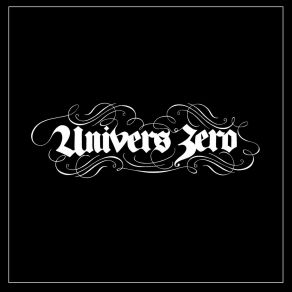Univers zéro / Univers zero
Download links and information about Univers zéro / Univers zero by Univers Zero. This album was released in 1977 and it belongs to Rock genres. It contains 6 tracks with total duration of 01:05:56 minutes.

|
|
|---|---|
| Artist: | Univers Zero |
| Release date: | 1977 |
| Genre: | Rock |
| Tracks: | 6 |
| Duration: | 01:05:56 |
| Buy it NOW at: | |
| Buy on iTunes $5.99 | |
| Buy on iTunes $9.99 | |
| Buy on Amazon $17.06 | |
Tracks
[Edit]| No. | Title | Length |
|---|---|---|
| 1. | Ronde | 15:12 |
| 2. | Carabosse | 3:44 |
| 3. | Docteur Petiot | 7:34 |
| 4. | Malaise | 7:56 |
| 5. | Complainte | 3:23 |
| 6. | La faulx | 28:07 |
Details
[Edit]Some very peculiar rock music hybrids emerged in the 1970s, but none was any more peculiar than Univers Zero, a classically influenced group of primarily Belgian musicians. Sometimes compared to the slightly earlier and enormously influential King Crimson, Univers Zero was actually much more extreme. While Crimson used Robert Fripp's lead guitar and Ian McDonald's Mellotron to approximate a symphonic rock sound rooted in the 19th century romantic tradition of Richard Strauss, Mahler and Wagner, the earliest versions of Univers Zero were not only more purely classical in their instrumentation (bassoon, violin, viola, cello, harmonium, spinet piano), but much more contemporary in their musical appropriation of the dissonant, jagged 20th century classical styles of Stravinsky, Bartók, Ligeti, and Penderecki, among others. The other constant and distinguishing quality of Univers Zero was the longtime preoccupation of drummer/leader Daniel Denis with the early 20th century fantasy/horror writer H.P. Lovecraft — as indicated by the names of his two predecessor bands, Arkham (the mythical town where most of Lovecraft's stories were set) and Necronomicon (a mythical Lovecraft book of forbidden secrets). Some critics regard Univers Zero's music as pretentious and gloomy, but it's never pretentious in the easy, predictable manner of most progressive rock, and as for the gloom, there's actually a kind of jaunty gallows humor in many of the pieces on this debut — particularly in the two by guitarist Roger Trigaux, which feature march rhythms somewhat suggestive of Shostakovich or Prokofiev. The rhythmic energy and dissonant riffs, the distinctive sound of the bassoon and strings, and the tricky, fragmented time signatures make for a challenging and highly distinctive listening experience.